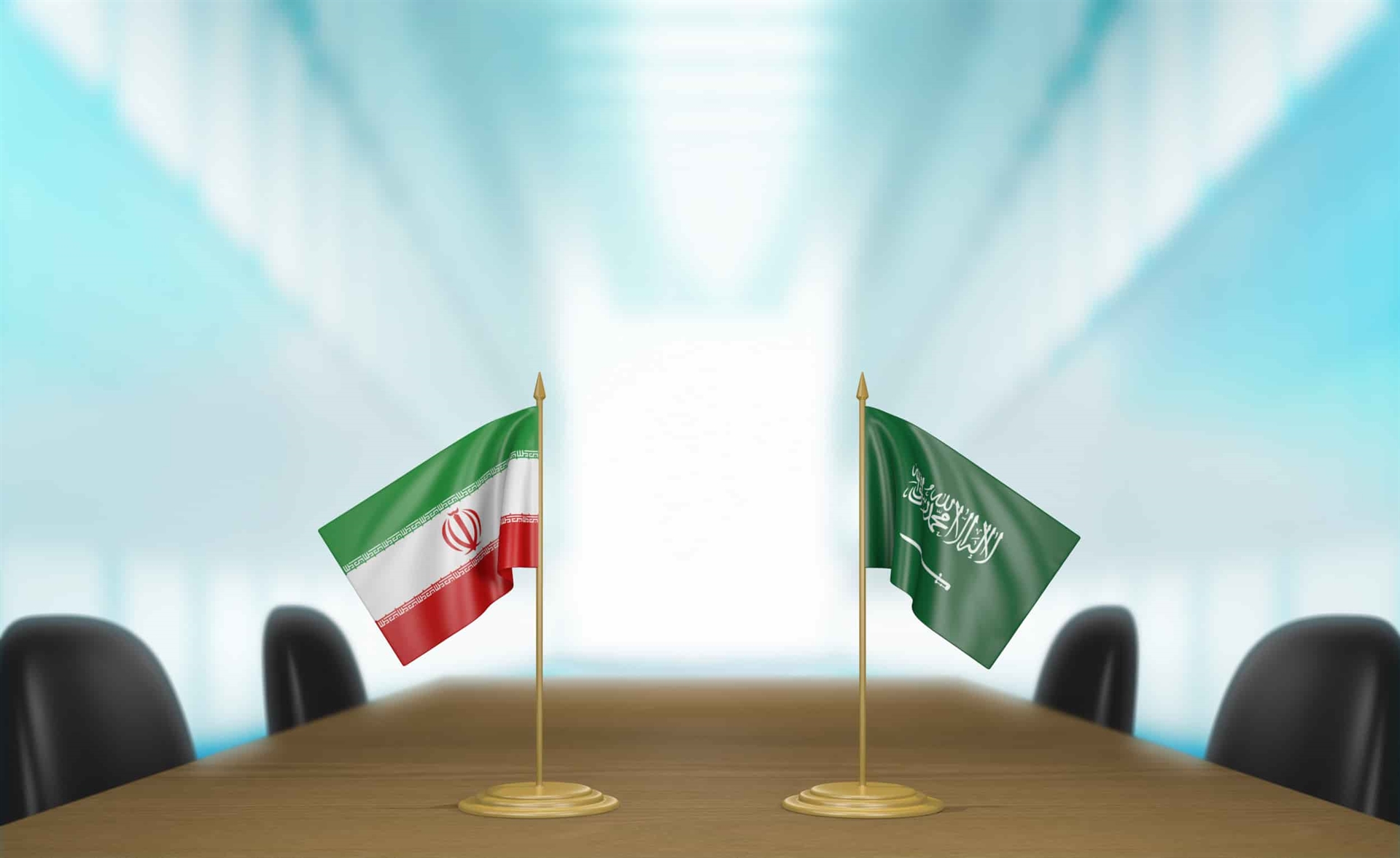The new chapter of Iran-Saudi relations
Geopolitical balancing is the rational action of all actors in the international system and subsystems. The greater the importance of the subsystem (region), the more sensitive and complex geopolitical balancing becomes, so that the process of balancing it includes a range of conflict-oriented to interaction-oriented actions.

- Geopolitical balancing is the rational action of all actors in the international system and subsystems. The greater the importance of the subsystem (region), the more sensitive and complex geopolitical balancing becomes, so that the process of balancing it includes a range of conflict-oriented to interaction-oriented actions.
- The sensitivity and complexity of relations in the West Asian region (which, according to many analysts and theorists, constitutes the heartland of the international system in the third millennium) make geopolitical balancing more complicated than other regions and subsystems. Based on this, in order to maintain their dynamism and survival, the actors in West Asia must be equipped with material and meaningful tools through which they can perform a range of interactive, competitive, and, if necessary, confrontation-oriented actions.
- The privileged and strategic position of Iran and Saudi Arabia in the West Asian region, in the Islamic world, and in the international system is clear to all observers of the international environment. The history of the past 70 years proves that the quality of relations between Iran and Saudi Arabia has always had a regional reflection, and based on the evidence, it can be said that in recent years, the quality of relations between Tehran and Riyadh has also had an international reflection. Therefore, the quality of relations, the fields of competition, and the type of interaction between Iran and Saudi Arabia have a direct and indirect effect on the political, security, economic, and even social aspects of the countries of the region and the Islamic world.
- A look at the history of the relations between Iran and Saudi Arabia, especially after the Islamic Revolution, shows that the best theoretical concept that can explain the relations between Iran and Saudi Arabia is the same concept of geopolitical balancing, whether when Tehran and Riyadh moved towards de-tension and interaction or when there was an active confrontation between the parties. In both situations, it was caused by the structural requirements of power and the act of geopolitical balancing.
- What also theorizes the current state of relations between Iran and Saudi Arabia, i.e., the interactive space created after the agreement of March 10, 2023, is geopolitical interactionism based on interactive action.
- Five structural factors and five agency factors have caused Tehran and Riyadh to step towards geopolitical balancing based on two-way interaction.
A: Structural factors:
- The political, security, and economic trends show that the stabilizing (de-tension) factors in the Persian Gulf are more dynamic and more powerful than the tension and destabilizing factors.
- Despite the noticeable superiority of geopolitical elements over geoeconomic elements, geoeconomic elements are being strengthened in the Persian Gulf.
- The internal regional order is being strengthened in the political sphere of the countries of the Persian Gulf region with the participation of regional actors and the minimal participation of external powers.
- The Zionist regime's project to create polarization between Iran and the Arab countries through Iranophobia is declining and has not been welcomed by the nations and governments of the region.
- In recent years, we have witnessed the decline of America's presence in the region, a strategy that is followed in America under the title of remote balancing and or guidance from outside, and it has caused a relative loss of trust in America's traditional allies in the region.
B: Agency factors (observing the will of the leaders of Iran and Saudi Arabia):
- The seriousness of the Islamic Republic of Iran in realizing the neighborhood policy step by step;
- The will of Tehran and Riyadh to create regional stability and, in fact, the convergence of the interests of Iran and Saudi Arabia in the issue of regional stability at the current stage;
- The will of Saudi Arabia to reduce its security dependence on America; the process that started in 2010 and is known as the diversification of Saudi Arabia's relations with the great powers;
- The demand of the region and Muslim nations in Islamic countries from Iran and Saudi Arabia to de-tension;
- The will of the two countries to cooperate in various economic fields, tourism, as well as cooperation at the regional level and international organizations
The expansion of cooperation between the two big countries of the region will certainly not only have wide benefits for Iran and Saudi Arabia, but it will also be in line with the interests of the region and the Islamic societies.
Seyyed Mohammad Hosseini, a senior expert at the IPIS
(The opinions expressed are those of the authors and do not purport to reflect the opinions or views of the IPIS)